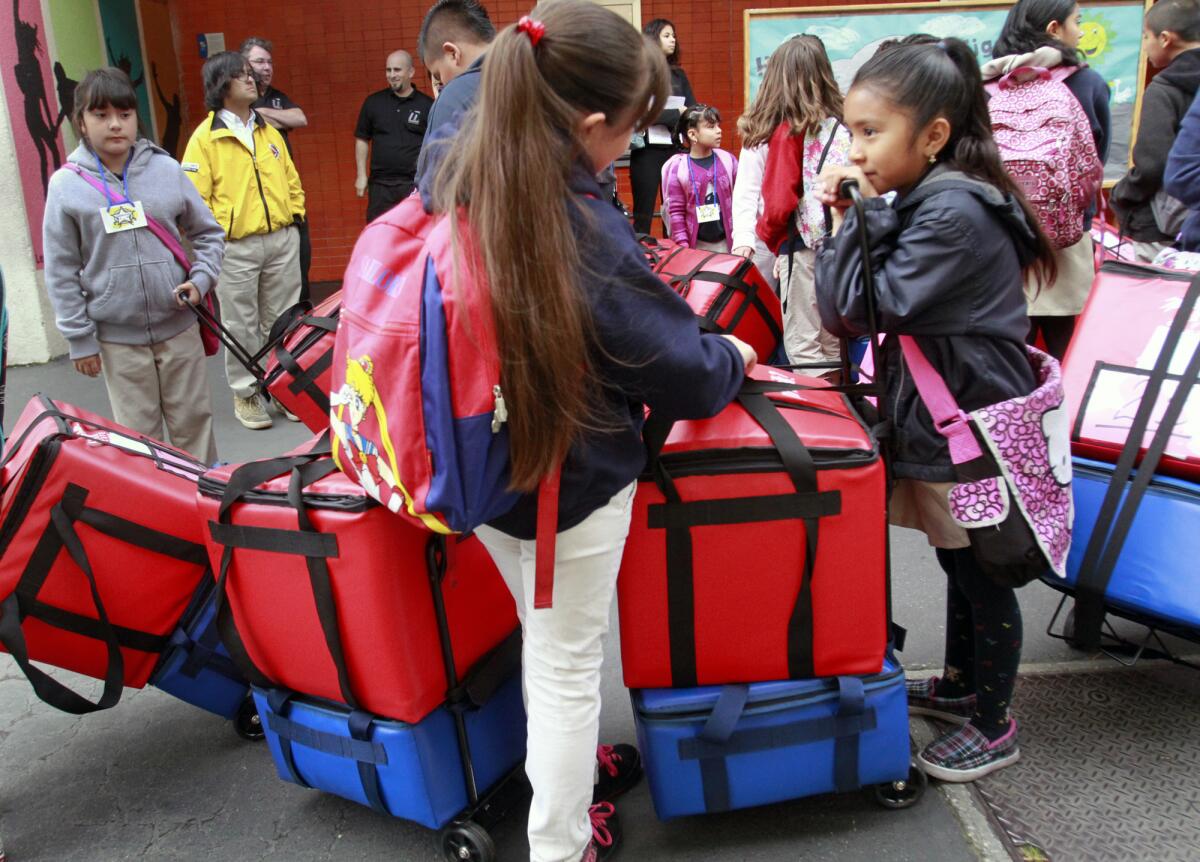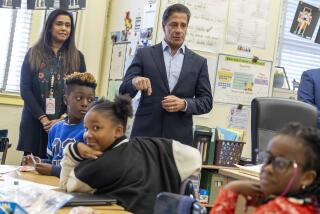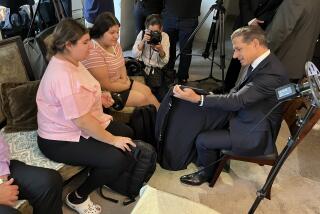Teachers dislike breakfast in the classroom program, survey finds

An L.A. Unified program to serve breakfast in the classroom to make sure students don’t start school hungry has increased pests, created messes and cut down on instructional time, according to a teacher survey released Monday.
In an online survey conducted last month, United Teachers Los Angeles found that more than half of 729 respondents disliked the program but would support it if sanitation and time issues were resolved.
More than half said that they have seen an increase in bugs and rodents in their classrooms, and that it takes an average of 30 minutes to set up the breakfast, feed the students and clean up.
In a video posted on YouTube by the union, Anne Zerrien-Lee of Esperanza Elementary School said the daily breakfast takes up to 45 minutes of classroom time, causing her to cut out a “book exploration” activity.
Another teacher, Elena Kelly of Fourth Street Elementary, said she has lost time she used to use to plan lessons and prepare materials. She also said classrooms have become dirtier because students spill their milk or juice every day but budget cuts have reduced custodial service.
Teachers also said that students throw away much of the food and that they have sometimes received expired food, spoiled milk and rotten fruit.
District administrators, who could not be reached for comment, have said that schools are reporting better attendance, less tardiness and fewer trips to the nurse’s office since the program was launched in 2011 by L.A. Unified, the nonprofit Los Angeles Fund for Public Education and other partners.
The program marked the first initiative by the L.A. Fund, which is providing about $200,000 to help develop nutrition education, train teachers in ways to provide it during the breakfast period and work with vendors to improve food quality.
Children from low-income families -- who make up about 80% of L.A. Unified students -- are less likely to eat breakfast, according to the California Food Policy Advocates.
Some parents may not be able to afford the food; others may leave for work too early to make breakfast for their children. Although they are eligible to eat breakfast before school in the cafeteria, some students arrive too late to do so, officials have said.
Under the program, more than 200,000 students at 274 schools are being served breakfast in the classroom. The district hopes to expand the program to 676 campuses serving more than 500,000 students in the next few years. Such an expansion could bring in an estimated $23.5 million annually in federal school meal reimbursements, Food Services Director David Binkle has said.
The union found that 88% of teachers surveyed supported breakfast in the schools, but wanted it served in the cafeteria, not the classroom.
“Our members are supporting providing nutritional breakfasts for students in the cafeteria where it belongs,” Juan Ramirez, UTLA elementary vice president, said in a statement.
ALSO:
Boston explosions prompt tighter security across L.A.
Dozens line up for meningitis vaccine in West Hollywood
Corruption convictions reduced for former South Gate official
Twitter: @TeresaWatanabe
More to Read
Start your day right
Sign up for Essential California for news, features and recommendations from the L.A. Times and beyond in your inbox six days a week.
You may occasionally receive promotional content from the Los Angeles Times.







